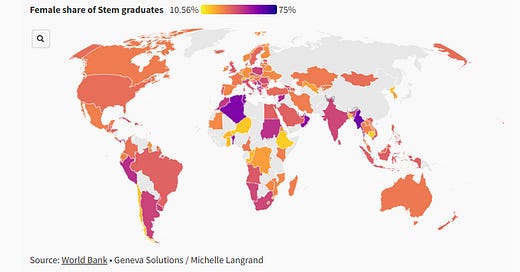The Sunday Brew #104
In this brew - Women in STEM in a picture | Woozle Effect & Tocqueville Paradox | 47th President of USA, Berkshire Hathaway amass unprecedented cash reserve, and Dharmesh - OpenAI chat.com deal
Welcome to The Sunday Brew, weekly 1-2-3 newsletter by The Percolator. Every Sunday we drop in your inbox 1 story in a picture, 2 concepts, ideas or frameworks to expand your horizons and 3 news from the week, to keep you updated.
If you are not a paid subscriber, here is what you missed last week:
Keep reading with a 7-day free trial
Subscribe to The Percolator to keep reading this post and get 7 days of free access to the full post archives.






